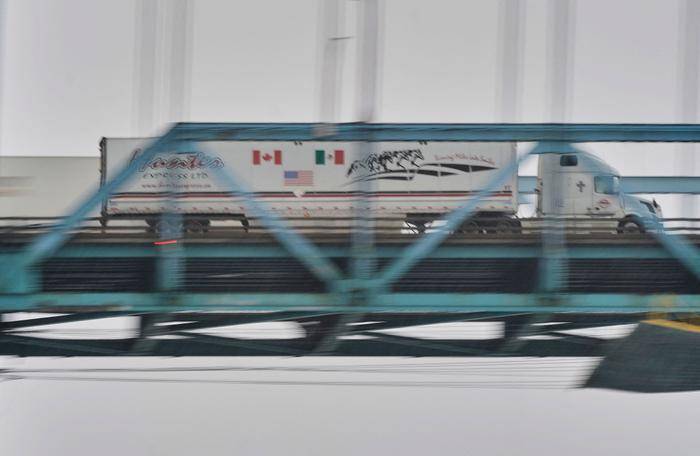US Trade Policy Shifts into High Gear: Trump's Tariffs Spark Fears of Escalating Trade Wars
The United States has taken a significant step towards a potential trade war with Canada, Mexico, and China, as President Trump's administration threatens to impose tariffs on imports from these countries. The move has sparked widespread concern among economists, businesses, and international leaders, who fear that the tariffs could lead to retaliatory measures and a broader trade conflict.
At the heart of the issue are the tariffs themselves, which the Trump administration has proposed as a means of protecting American industries and jobs. The tariffs would apply to a range of goods, including steel, aluminum, and other products, and would be imposed on countries that the administration deems to be engaging in unfair trade practices.
However, critics argue that the tariffs would have far-reaching and devastating consequences for the US economy, as well as for the economies of the countries targeted by the tariffs. They point out that the tariffs would lead to higher prices for consumers, reduced competitiveness for American businesses, and a potential loss of jobs in industries that rely on imported goods.
*The Economic Impact of the Tariffs*
According to a report by the Tax Foundation, the proposed tariffs would shrink economic output by 0.4% and increase taxes by $1.2 trillion between 2025 and 2034 ¹. The report also notes that the tariffs would lead to a loss of 344,000 full-time equivalent jobs, as well as a reduction in capital stock and pre-tax wages.
Furthermore, the tariffs would also have a significant impact on the US trade deficit. While the Trump administration has argued that the tariffs would help to reduce the trade deficit, many economists believe that the opposite is true. They point out that the tariffs would lead to higher prices for consumers, which would reduce demand for imported goods and lead to a reduction in exports.
The international community has been quick to respond to the Trump administration's proposal, with many countries expressing concern and outrage over the tariffs. Canada, Mexico, and China have all threatened to impose retaliatory tariffs on US goods, which could lead to a broader trade conflict.
The European Union has also weighed in on the issue, with the European Commission President Jean-Claude Juncker stating that the EU would take "all necessary measures" to protect its interests in the event of a trade war.
As the situation continues to unfold, it remains to be seen how the Trump administration will respond to the criticism and concern from the international community. While the administration has shown no signs of backing down on its proposal, many economists and business leaders believe that a more nuanced approach is needed.
Ultimately, the key to resolving the issue will be finding a balance between protecting American industries and jobs, while also avoiding a broader trade conflict. This will require careful diplomacy and negotiation, as well as a willingness to listen to the concerns of other countries.
As the world waits with bated breath to see how the situation will unfold, one thing is clear: the stakes are high, and the consequences of a trade war could be devastating.


